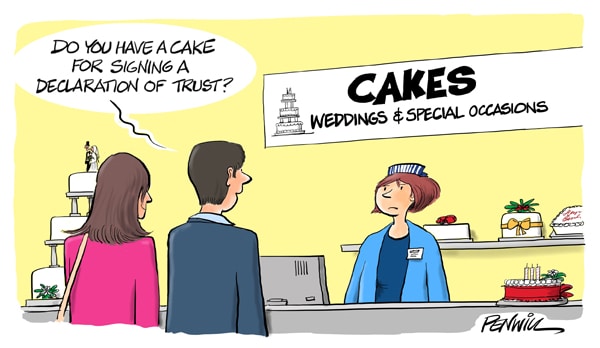Q&A: Buying property with a partner

Claire Barwick, a lawyer in the Residential Property, Farms and Estates team at RWK Goodman in Oxford, offers the following advice.
A: Your friend is absolutely right! Unfortunately, it is common for couples to part so it is crucial to consider the worst case scenario while you are still on good terms.
There are two ways of owning a property together: you can either be “Joint Tenants” or “Tenants in Common”. The word “tenants” simply means holder of property – it has nothing to do with renting!
Being Joint Tenants means there is no reference to an actual share or percentage owned by each person, even if one person has put more money in. However, if you are Tenants in Common, a distinct share or division of the property can be set out, such as being in equal shares or whatever proportion you and your co-owner agree. It would be more usual for unmarried couples to be Tenants in Common, especially if they have put in unequal shares of the deposit, but your lawyer can advise you on what would be best for you.
To protect your share and agree how you will deal with things when the property is sold or if you separate, you should ask a lawyer to draw up a “Declaration of Trust” which sets out your agreement. This will show, for example, how much you have each contributed, what share of the equity in the property you own and how much you will each contribute to the running costs of the property. A Declaration of Trust will give you peace of mind, knowing you can rely on it as a true reflection of your intentions at the time you bought the property, should you ever need to in the future.
As a home owner, you should also consider making a Will to protect your estate and your share in the property in the event of your death.